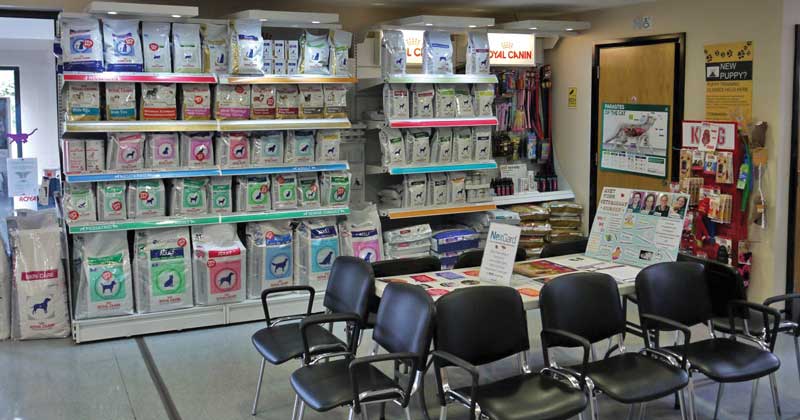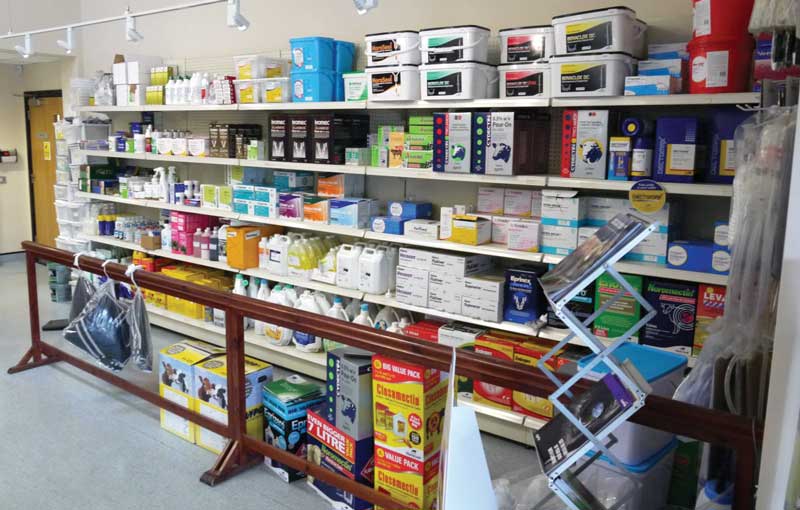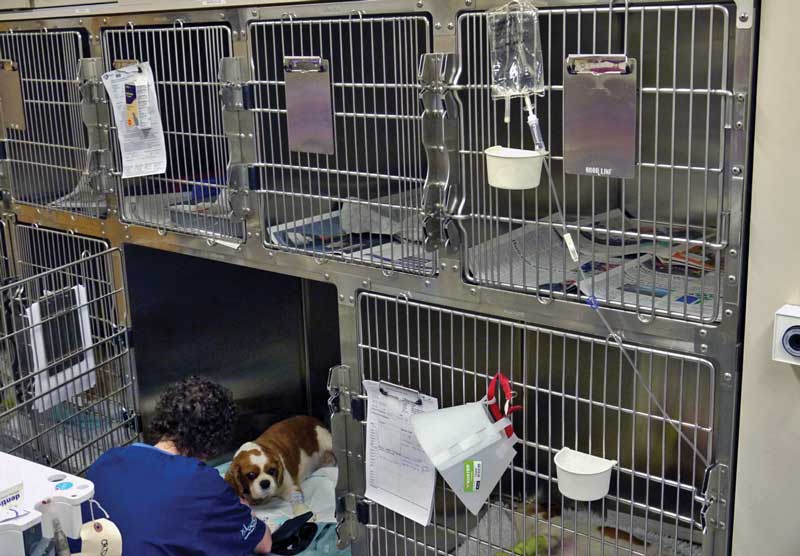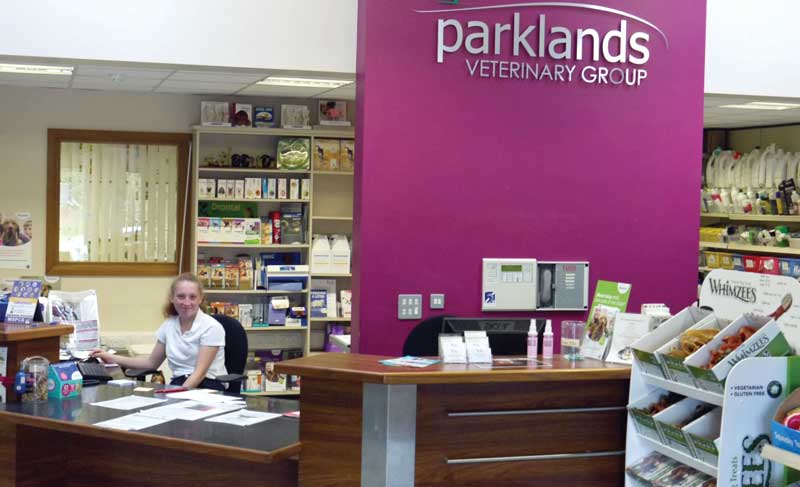4 Dec 2020
Coronavirus continues to dominate the agenda, but for some the Brexit deadline is now starting to loom just as menacingly. For practices like Parklands Veterinary Group in Dungannon, Northern Ireland, what happens on 1 January is of huge significance, as VBJ discovered when we spoke to clinical director Eamon Donnelly…

Images © Parklands Veterinary Group
During the long history of Parklands Veterinary Group – a predominantly farm animal outfit tucked into a fertile corner of Northern Ireland’s cattle country – the practice has witnessed many great events; not least the shotgun wedding brokered by Ted Heath’s government in 1973 when the UK joined the fledgling European Economic Community. Now, with no small amount of trepidation, it’s about to witness the end of the rather protracted divorce.
For Eamon Donnelly and his team, it would be fair to say that Brexit is not something they are relishing, as it brings with it the one thing all businesses fear – uncertainty, and lots of it.
For a business like theirs that relies so heavily for work on farm clients that do the bulk of their business outside the UK domestic market, having no clear trade deal yet in place is a real cause for concern.
With more than 25,000 dairy cows and 17,000 suckler cows – as well as thousands of pigs and poultry – under the care of the practice, the prospect of a hard border and increased tariffs on agricultural products has significant implications, as Eamon explained.
He said: “Coronavirus is a concern, but Brexit is our big worry in Northern Ireland. Before Brexit, we had no borders and now we are going to have two borders with two different sets of rules, and that is our concern going forward.
“Here, we have a foot in both camps – the UK and the EU market – but I just worry we will fall between those two stools. That’s the worry round the corner, especially for milk; the milk is processed, but most of that milk is processed in [the Republic of] Ireland, so if there is a hard border that would create massive problems for our dairy industry. We just have to hope that the politicians can sort it out.”
He added: “If there was a free trade deal between the UK and the EU, they wouldn’t need to have tariffs at the border, so that would create free trade and that would solve the problem for me. If you don’t, you need to collect tariffs, and that creates problems.
“There may be advantages having tariffs; if the UK imports beef, that will cause a tariff and that will mean our own beef will be more in demand in that market, but then our milk products here in Northern Ireland will be hit with a tariff when they go to Ireland. It also creates problems for the marketing board in the south if they are taking milk from us with the UK counting as a third country – there are a lot of unknowns that won’t show their head until the start of January, and that is one thing business doesn’t like.”

Recruitment is also a challenge. The practice employs many vets from EU countries like Belgium and Spain, and Brexit is likely to impact that, too, with the practice having to find £8,000 in visa fees should it decide to employ more European vets after the 1 January deadline.
But recruitment is an issue across the UK vet sector and the business is hardly struggling – far from it. The story of Parklands is one of constant growth and consolidation, sustained over more than six decades.
The practice sits in an extremely fertile corner of the country where the dairy and beef sectors are some of the most productive in the world. This is helped by being flanked on one side by the Shorn Mountains and on the other by Lough Neagh, which creates the perfect microclimate for the rearing of livestock and the perfect environment for a largely farm animal practice.
Eamon added: “Our success is a lot to do with geography as where we are is a very intensive livestock area. In mid-Ulster, where we are, we have the most intensive livestock units in Europe – we have a massive poultry industry, we have a lot of dairy cows and we have a lot of pigs.
“There is a very rich tradition of agriculture in this area – the farms may be smaller in size, but it is quite intensive and that is the heritage. We have very progressive farmers and that has helped with our growth.
“The practice has always tried to push the boundaries and try to be the first in Ireland to do things like ovum pick-up or embryo transfer, or software packages for interrogating milk records, running farms courses, AI courses, feed courses, heifer rearing courses – farmer education has always been central to us, as has building that relationship with our clients. That has helped growth.”

The practice is now based across five separate sites in Dungannon, Cookstown, Aughnacloy, Portglenone and Coalisland, and while it remains predominantly large animal, the pace of growth on the companion animal side is now outstripping that seen on the farm side.
Like all practices, COVID-19 has hit companion animal business, but after an initial dip, work has bounced back, with growth reported from the end of the first lockdown to the start of the second.

One of the other significant developments at Parklands has been the acquisition of the practice by VetPartners – something the Parklands partners felt would help the practice keep pace with the increasing consolidation seen in the farming sector.
Eamon added: “We recognised that, because we had done our own organic growth, we could see the obvious benefits of being part of a larger group – in terms of buying power and merchandising, recruitment, HR, but even that sharing of knowledge and that knowledge transfer. That is what gives us that edge.
“Obviously, buying power is something, because farm animal is very dependent on drug sales – more so than the clinical work. It is very important you are buying your drugs at the best price possible to stay competitive, and maintain a margin and keep the practice going.
“It has also given us access to other streams for the purchasing of medicines that had been closed previously just because of our geography. That has given us a lot more options.
“We liked the fact that VetPartners had a large chunk of the UK large animal sector, so we were joining like-minded practices that were either mixed or just large animal and we could share information across a much wider group, which has been great.
“Little things like when we needed a new bull fertility kit we were given great advice on where to get that; little day-to-day management things where we can now pick up the phone or send a WhatsApp or something. It makes life a lot easier to get that advice.
“And also, the likes of our poultry and pig guys sometimes felt out on their own a bit, because it is a unique business in a lot of ways. They are smaller teams and I know they felt a bit isolated, but now being part of a bigger group with some very experienced pig and poultry vets has helped them enormously, and given them a lot of extra support – they get real benefits.”

Parklands now boasts a staff of 112 – including 32 vets and 10 vet nurses, as well as a small army of administration staff, practice managers and auxilliary teams working with the farm vets across the poultry and pig sections of the business.
And despite the uncertainty caused by the looming Brexit deadline, the team has big plans for the future and remains committed to being at the sharp end of innovations in such a fast-moving sector.
Eamon added: “We want to create a mid-Ulster referral service for small animal, and on the large animal we have to respond to the way the industry is changing and it is still consolidating. I think there will be less farms, but bigger farms.
“The amount of automation and big data coming out of those farms as well is something that we are going to have to get a handle on, and be fit to use that and maintain relevance to those farms, as a lot of organisations out there are trying to take a bit of that pie – be it feeding mills, or the groups that make the robotic parlours or the robotic feed out systems, the AI companies – they are all trying to get that business.
“I just feel we need to keep on top and improve our ability to interpret data; as I said there is a lot of data being generated by robotic milkers and so on, and I worry that vets could get locked out of that circle of information if we are not careful and that is where I see the need to grow in the short term.”